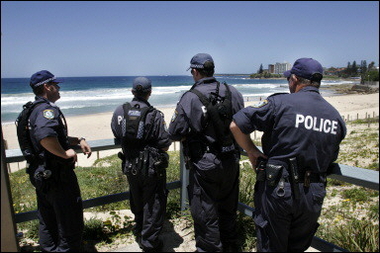 Neil McMahon, The harassment by other Australians is relentless, young Lebanese people say – on trains, at school, on the street, at the beach. But no authority figures attract as much criticism as police officers.Rania Hamam, 18, who was interviewed for the research project by the Centre for Peace and Conflict Studies, told the Herald that police harassment was common.She had been stopped and ordered to surrender her mobile phone in Auburn on Wednesday. "I said to him, ‘My phone is private’, but he took it anyway," she said. The officer checked the phone for text messages as part of the police crackdown after recent racial clashes.Ms Hamam said she wanted to become a police officer – because the only way she could see the force changing was if people of different backgrounds joined it. "If police treat us with respect we will reply with respect," she said. The centre’s research on racism revealed a widespread perception of police bias.
Neil McMahon, The harassment by other Australians is relentless, young Lebanese people say – on trains, at school, on the street, at the beach. But no authority figures attract as much criticism as police officers.Rania Hamam, 18, who was interviewed for the research project by the Centre for Peace and Conflict Studies, told the Herald that police harassment was common.She had been stopped and ordered to surrender her mobile phone in Auburn on Wednesday. "I said to him, ‘My phone is private’, but he took it anyway," she said. The officer checked the phone for text messages as part of the police crackdown after recent racial clashes.Ms Hamam said she wanted to become a police officer – because the only way she could see the force changing was if people of different backgrounds joined it. "If police treat us with respect we will reply with respect," she said. The centre’s research on racism revealed a widespread perception of police bias.
One man, Tariq, 19, recalled driving around Auburn and Bankstown with a friend who owned a Mercedes. In one night, he said, they were pulled over 22 times. Tariq said his friend had asked police why he was being harassed. An officer had replied: "A young, ethnic guy driving a Mercedes – why wouldn’t we?" Another, more disturbing, incident was described by Hana, a 16-year-old girl, who said a police officer asked a male friend: "Which girls are you ready to rape?"Ms Hamam said some members of the Lebanese community had to take responsibility for contributing to the problem.
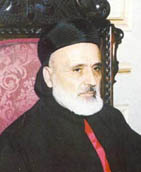 By Rita Daou A sleek official-looking convoy rolls up in front of Beirut’s Maronite patriarchate. No-one emerges. Seconds later a lone, humdrum jeep pops up. And out steps Lebanon’s Prime Minister Fuad Siniora.Such fake convoys are just one of the methods used by Lebanese politicians attempting to outwit potential attackers who have reportedly already compiled hit lists of their next targets.
By Rita Daou A sleek official-looking convoy rolls up in front of Beirut’s Maronite patriarchate. No-one emerges. Seconds later a lone, humdrum jeep pops up. And out steps Lebanon’s Prime Minister Fuad Siniora.Such fake convoys are just one of the methods used by Lebanese politicians attempting to outwit potential attackers who have reportedly already compiled hit lists of their next targets.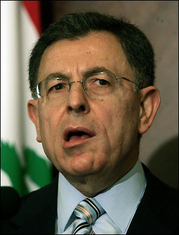 BEIRUT (Reuters) – Lebanon criticised on Wednesday U.S. demands that it hand over a Hizbollah hijacker released by Germany after nearly 19 years in jail for murdering an American."Originally they (the U.S. government) could have requested that Germany hand him over. Why are they asking us?" Prime Minister Fouad Siniora told reporters."He served his sentence in Germany and there are measures that will be completed in Lebanon…Why are they asking us now?"
BEIRUT (Reuters) – Lebanon criticised on Wednesday U.S. demands that it hand over a Hizbollah hijacker released by Germany after nearly 19 years in jail for murdering an American."Originally they (the U.S. government) could have requested that Germany hand him over. Why are they asking us?" Prime Minister Fouad Siniora told reporters."He served his sentence in Germany and there are measures that will be completed in Lebanon…Why are they asking us now?"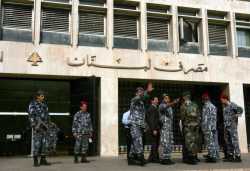 Beirut – A rumour of a new explosion circulated Saturday in the Lebanese capital and kept Lebanese in their homes over the weekend. The source of the rumour was an e-mail that read, ‘Attention Michel Hayek (a famous Lebanese psychic) predicted that an explosion will hit one of Beirut’s shopping malls where dozen of children and women will be killed.’ The mail called on every Lebanese to pay attention and to pass on the message.
Beirut – A rumour of a new explosion circulated Saturday in the Lebanese capital and kept Lebanese in their homes over the weekend. The source of the rumour was an e-mail that read, ‘Attention Michel Hayek (a famous Lebanese psychic) predicted that an explosion will hit one of Beirut’s shopping malls where dozen of children and women will be killed.’ The mail called on every Lebanese to pay attention and to pass on the message. 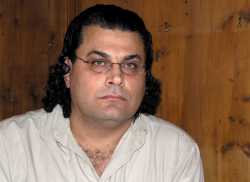 Munich – Fresh elements were added Saturday to the mysterious tale of a Lebanese-born German, Khaled el-Masri, who says he was kidnapped by the U.S. Central Intelligence Agency (CIA) and held for five months until the Americans realized he was innocent. While Washington has not confirmed any part of the story, Berlin has implicitly confirmed his detention in a series of statements.
Munich – Fresh elements were added Saturday to the mysterious tale of a Lebanese-born German, Khaled el-Masri, who says he was kidnapped by the U.S. Central Intelligence Agency (CIA) and held for five months until the Americans realized he was innocent. While Washington has not confirmed any part of the story, Berlin has implicitly confirmed his detention in a series of statements. 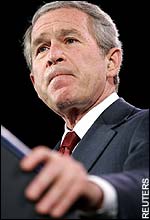 By Gerry J. Gilmore AFPS, U.S. President Bush accused the Syrian government of looking the other way as suicide-bent insurgents flow across its border into Iraq to commit mayhem. "We expect Syria to do everything in her power to shut down the transshipment of suiciders and killers into Iraq. We expect Syria to be a good neighbor to Iraq," Bush said during a White House press conference that included outgoing Polish President Aleksander Kwasniewski. Poland has sent troops to support coalition efforts in Iraq.
By Gerry J. Gilmore AFPS, U.S. President Bush accused the Syrian government of looking the other way as suicide-bent insurgents flow across its border into Iraq to commit mayhem. "We expect Syria to do everything in her power to shut down the transshipment of suiciders and killers into Iraq. We expect Syria to be a good neighbor to Iraq," Bush said during a White House press conference that included outgoing Polish President Aleksander Kwasniewski. Poland has sent troops to support coalition efforts in Iraq. 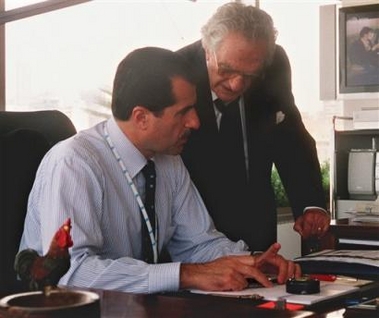 Sunday December 18, 2005, The Observer, One of the world’s most distinguished newspaper publishers came out of retirement last week at the age of 79. He had settled in France, a country he loved and which loved him back, only last week having bestowed on him the L
Sunday December 18, 2005, The Observer, One of the world’s most distinguished newspaper publishers came out of retirement last week at the age of 79. He had settled in France, a country he loved and which loved him back, only last week having bestowed on him the L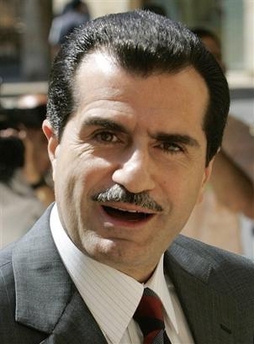 BY
BY 


